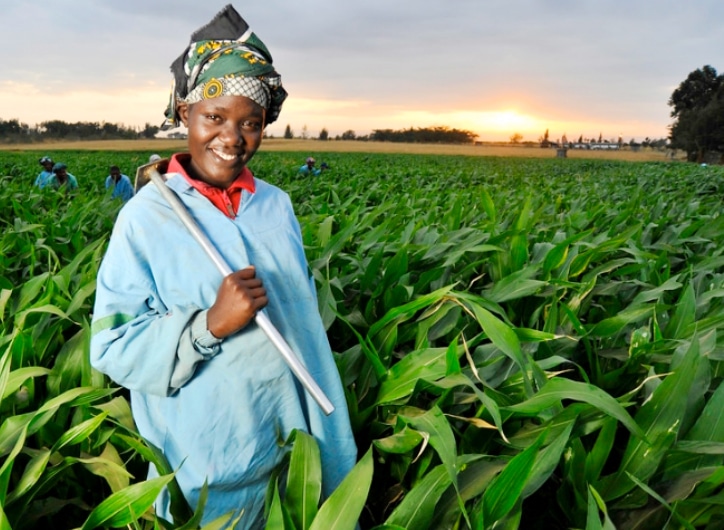Source: Wandile Sihlobo, Agbiz e-newsletter, 9 July 2021, photo credit: Umaizi
This essay first appeared on News24, 06 July2021
South African agribusinesses aiming to expand their operations into the rest of the continent in the coming years will face different environments compared to realities in South Africa.
This includes the commonly cited factor of poor infrastructure, and also a much less talked about problem, which is low levels of agricultural productivity. With respect to the latter, a recent study by agricultural economists Thomas Jayne and Pedro Sanchez argued that sub-Saharan Africa’s agricultural output growth in the recent past has been through area expansion rather than improvement in productivity or yield per hectare.
A case in point is maize, which shows a striking difference in yield levels between South Africa and the rest of sub-Saharan Africa. Consider maize yields between 2015 and 2020 in Zimbabwe, Nigeria, Kenya, Malawi and Tanzania, which averaged 2 tonnes per hectares for most of these countries with the exception of Zimbabwe, where the yields averaged one tonne per hectare over the observed period.
By contrast, South Africa’s maize yields averaged 5 tonnes per hectare over the observed period.One of the reasons for this difference in yield levels is the difference in input use between South Africa and most countries in the content. South Africa has an advanced and highly mechanized large scale commercial farming sector, which has ready access to fertilizers, improved seed varieties, agrochemicals.
By contrast, most sub-Saharan African countries are dominated by micro, small and medium-scale farmers–a majority of whom are resource poor and lack access to fertilizers and hybrid seeds.Intensive maize production systems typically require relatively higher input costs, which, with lack of access to credit and finance, limits small-scale farmers’ uptake of these technologies is limited.
Another point to consider is that in countries such as Zimbabwe, smallholder farmers tend to limit the area planted to food crops in favor of tobacco and other lucrative crops in various seasons. Still, the point of lower productivity in food crops in sub-Saharan Africa remains. A 2019 study by McKinsey researchers made a similar point that Africa’s potential lies in improving the crop yields, and not land expansion,which has been the dominant practice in the recent past.
Read more
The South African Pork Producers’ Organisation (SAPPO) coordinates industry interventions and collaboratively manages risks in the value chain to enable the sustainability and profitability of pork producers in South Africa.









